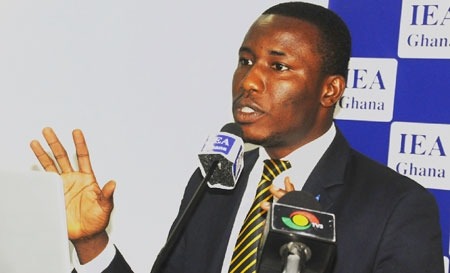The Institute of Economic Affairs (IEA) is recommending to government and parliament to consider tax reductions and incentives for the development of alternative sources of power generation.
A power crisis report by the institute has revealed that 89 percent of households and 59 percent of SMEs do not have access to any alternative source of power, indicating a high level of reliance on public sector electricity supply in Accra.
Businesses and households continue to suffer the impact of erratic power supply in parts of the country.
A recent survey by the Institute of Economic Affairs shows that 64% of respondents indicated that the effect of power outages this year included damage to their electrical appliances and or financial losses to their business or both.
The institute has recommended 3 measures to government as part of a broader solution to Ghana’s power problems.
“The government should work with all major players in the power sector to provide a permanent and sustainable solution to Ghana’s reoccurring power crisis as it has dire consequences for small and medium scale businesses and poor households. A permanent solution may transcend government; therefore, we expect all political parties to produce a roadmap for a lasting solution to Ghana’s energy in their manifestos.
The Electricity Company of Ghana should provide information in advance on the time of power outages, the reason for a power outage and when to expect the restoration of power at the local level to help businesses and households plan their daily activities efficiently. This can be done effectively through the new ECG digital Power App.
The government and parliament should consider policies to make alternative power sources affordable and available to the people of Ghana. These include tax reductions on renewable energy such as solar panels and solar-powered portable lights,” the IEA recommended.
Director of Surveys at the IEA, Samuel Manu, addressing the media described the increases in electricity tariffs as insensitive in the face of erratic power supply (Dumsor).
“We don’t know why the PURC allows the ECG to announce tariff increments in the face of this erratic supply. We see it as insensitive to the plight of Ghanaians who are under the implications of the worsening economic crisis” he lamented.
The survey applied the convenience sampling method to solicit responses from 82 SMEs and 83 households in the Greater Accra Region on their ‘Dumsor’ experiences from Monday 6th May to Sunday 12th May 2024.
About 49% of respondents said they have no idea when this power crisis may end while 6.7% said it may never end.
By Grace Hamoah Asare Agyemang












